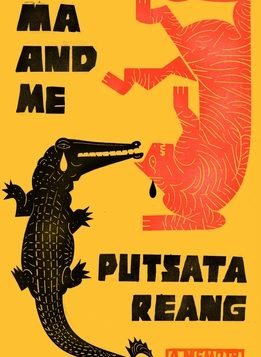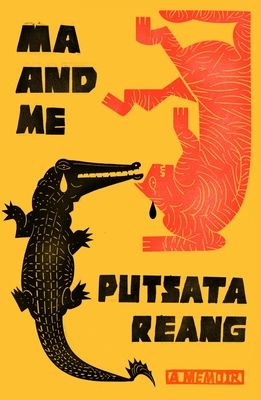JOURNALIST Putsata Reang has written a compelling memoir that offers a glimpse into a world that’s not often encountered in LGBT literature. In 1975, when she was not quite a year old, Putsata Reang and her extended family were refugees, fleeing Cambodia after it fell to the Khmer Rouge. They were at sea for almost a month on an overcrowded boat, suffering from hunger and exposure. Literally minutes from death’s door, she was saved by her mother’s dedication and the American medical staff at Subic Bay in the Philippines, where the boat was finally allowed to dock. About six months later, the family found itself settled in Corvallis, Oregon, thanks to Protestant church groups that had arranged for housing and jobs.
From her earliest years, Putsata Reang felt that she was different from her sisters, preferring to wear boys’ clothes and play with her brother’s toys. She had crushes on other girls and endured homophobic slurs. She also had a chaotic home life.
Her parents were extremely hard workers, but her father brutalized her mother and other family members for years, with her mother sometimes running away for short periods. Both parents refused to talk about what life had been like in Cambodia. After the Cambodian genocide became known, they were able to bring relatives over to the U.S., but they still didn’t talk about the terrors they’d endured. Fortunately, the Reang siblings and their cousins (who were treated as brothers and sisters) had very close bonds and provided emotional support for each other throughout their lives. Reang excelled in school, where she determined to become a foreign correspondent. While her mother was happy about her academic and professional success, she was adamant that Putsata get married and have children. The latter’s desperate need to live up to her mother’s expectations, along with her desire to prove herself worthy of having been saved as an infant, make for some harrowing reading. The author is brutally frank about her attempts at suicide during her college years. But it did get better. She had great success in her career, writing for The Seattle Times and The San Jose Mercury News, winning fellowships and spending long months in Cambodia and other parts of Asia, with a focus on training local journalists to report on corruption in local government. She is deeply insightful about what it means to be a “foreign correspondent” in the country of one’s birth. She also had to relearn a language that she had spoken until about second grade, and then lost. Over the years, Reang had some affairs with men, but many more with women. When she finally decided to come out to her mother after years of indecision, she found that her mother’s understanding was merely superficial. As she disclosed in a 2016 article for the “Modern Love” column in The New York Times (which formed the basis for her book), there’s no word in Khmer for bisexual, so she came out as gay. In that article, she quoted her mother as saying: “You’re crazy. You’re being disrespectful, dishonorable, disloyal. You’re not normal.” They did not speak to each other for long periods of time. Eventually, Reang did find the love of her life, but when she and April married, her parents refused to attend the wedding. Finally, the death of an in-law spurred her mother to begin to speak to her daughter again.
____________________________________________________ Martha E. Stone is the literary editor of this magazine.






